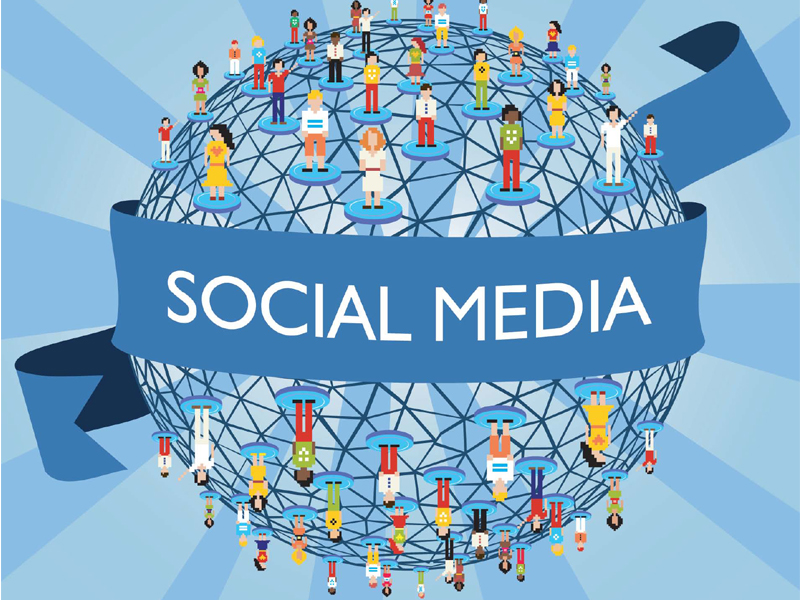
The early adopters

The Pakistan Tehreek-i-Insaf social media team was informally organised in 2007. The team has 50 members today and is divided into regions. Separate groups are responsible for back-end operations.
In December 2012, 28-year-old Imran Ghazali became the team leader. A finance graduate from the Ohio State University, Ghazali had been campaigning for Imran Khan and the PTI since 2007.
He returned to Karachi in 2011. Recently, Ghazali quit his job at a bank and moved to Lahore to invest more time in the PTI campaign.
He said that he had always wanted a formal set up but the party realised its potential ‘not very long ago.’
Ghazali says after social media was being used across the globe for campaigns like the Arab Spring, it was not difficult to convince the party leaders to seriously consider the idea. Also, he says, the PTI leadership is relatively more tech-savvy than leaders of other mainstream parties.
“We were the first to come up with the concept of a social media team. Obviously, we have an edge over the others,” he says.
In addition to managing the campaign on Twitter and Facebook, the PTI team runs an online television and a radio [Insaf TV and Insaf Radio.] “Our online groups have a larger following because the PTI has a strong youth following, connected to the virtual world,” he says.

Ghazali says the PTI team tries to update people on the most recent happenings.
“We offer live streaming of our jalsas – no other political party has achieved that,” he says.
The team runs an official Twitter handle, @PTIofficial, having more than 96,000 followers. Of the four official Facebook pages being run by the team, the official PTI page has over 640,000 likes.
There is an official code of conduct of PTI’s social media campaign. Ghazali says, “Some supporters get aggressive in the face of criticism especially of Imran Khan, but the party does not endorse aggressive behaviour.”
Ghazali denies reports of aggressive or offensive behavior by PTI team affiliates. He claims that investigations into complaints had revealed that fake accounts in the name of the party or its key members had been used for such activity. The team is travelling with party leaders to rallies from where live-streaming, tweeting, Facebook updates and pictures are uploaded.
Ghazali says the work has just begun. “There is a lot of prospect in this medium… considering the speed at which it is evolving,” he said.
Ghazali says he plans to look for another job after the elections.
The jiyala view

The PPP social media team has been around for almost four and a half years. Run by a group of 20 people, aged between 20 and 35, the team is spread out across the country.
The largest group is based at the PPP Central Secretariat in Islamabad. A six-member team runs its social media operations in Islamabad under Farhad Jarral, 25.
Jarral, who has a master’s in mass communication, started taking part in political activities as a student at the PECHS Education Foundation College, Karachi. He was the information secretary of the Peoples Students Foundation, the PPP’s student wing. In 2008, when the party decided to form a dedicated social media team, he signed up.
He says that the PPP is the only party which represents the entire country. ‘Jiyaala’, ‘Bhutto-ism’ and ‘democracy’ crop up often in his conversation.
“I am a hardcore jiyaala as are our other team members. We are here because of our passion,” says Jarral.
He says some PPP leaders initially doubted the use of a social media team. It was only because of the top leaders’ trust that the project got off, he adds. By then, the PTI was creating ripples on social media. This strengthened their cause.
Tasked with disseminating the ‘PPP point of view’, the team was formed to counter the ‘media’s partiality’ against the party, says Jarral.
“There is a lot of propaganda against the PPP on mainstream media,” he says, “We needed a platform to tell Pakistanis where we stood”.
Jarral says none of his team members are paid. “All work voluntarily.”
The team handles two Facebook pages, one with more than 44,000 likes. On Twitter, the official twitter handle @PPPSocialMedia, set up in 2012, has a little less than 4,000 followers.
“We have a simple understanding that our members must inform people about the party, our manifesto and our political direction,” he says. According to Jarral, the team has been directed to refrain from negative campaigning and ‘social media wars.’
Pointing at PTI, Jarral is of the view that groups, official or otherwise, tend to be aggressive against groups of a different political affiliation. “This is where the leaders of the party should take control. They should stop any use of abusive language,” he says, “We are representing a political ideology. We should be mindful of how we portray it.”
With the elections in sight, Jarral says the team is updating followers on the PPP campaign, but “we are still not as strong as we would like”.
Jarral says social media has come a long way. “Political parties just can’t afford to ignore it.”
He claims trends within parties have also changed as leaders have realised the potential of the medium. Post elections, he will propose to the PPP to train the rural youth in social media. “Social media is growing and is fast replacing the traditional media in the country,” he adds.
No trolling please

The PML-N social media team was conceived towards the end of 2011. By January 2012, the 20-member team, all aged 30 and below, was active in the virtual world.
The team is spread across the country with its headquarters in Lahore. PML-N has a large presence on Facebook and Twitter. On Facebook alone, it has eight official pages.
Saad Saleem Malik, 23, a postgrad student at Beaconhouse National University, is a senior member of the social media team.
He says he had long wanted to get the word out for democratic forces. In 2006, while Gen Pervez Musharraf was all over social media, no counter narrative was available. “I believe that the worst form of democracy is better than the best dictatorship,” he says.
Malik, a part of the PML-N social media team since its inception, says the party narrative entered the virtual world after PTI launched its social media campaign, .
While the party’s urban workers accepted the idea readily, he says, there was some resistance from rural workers. “Some of them still do not consider it [social media] a serious tool.”
The PML-N social media team had two basic objectives – interacting with the public and getting the party’s message across.
“Social media provides the speediest of response mechanisms...this helps the party evaluate its policies,” he says.
Malik says acceptance of the medium is growing within the party. Top leaders including former chief minister Shahbaz Sharif regularly monitor the party Facebook page. Maryam Nawaz, Marvi Memon and Ahsan Iqbal are active on Twitter, he adds.
The most popular official Facebook page run by the PML-N is of Shahbaz Sharif, with more than 415,000 likes. On Twitter, the PML-N Media handle, @PMLNMedia, has more than 5,000 followers. More than 11,000 people follow their official party handle.
Malik says the social media campaigning gained momentum when the caretaker set up took charge. With elections approaching, the team is focusing its efforts on highlighting the PML-N led Punjab government’s work, particularly in education and health.
“The worst part of the social media engagement is trolling whereby even genuine criticism gets lost,” Malik says.
The team members are not allowed to respond to ‘propaganda’ or ‘negativity’, he says. Twenty-four people were recently removed from the social media team over code of conduct violations.
“Initially we received a lot of bashing on social media because of our policy of not responding … over time people have realised that we are not interested in social media wars – they let us be,” he says.
As far as the strength of the medium is concerned, Malik believes there is no denying the fact that after these elections, all political parties would need to take social media seriously.
“There is no going back. This medium has proved its worth. It is here to stay!”
Published in The Express Tribune, May 6th, 2013.
COMMENTS (10)
Comments are moderated and generally will be posted if they are on-topic and not abusive.
For more information, please see our Comments FAQ





































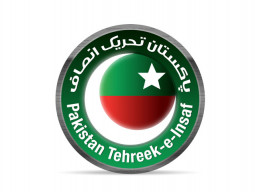

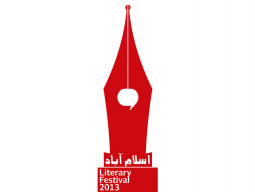
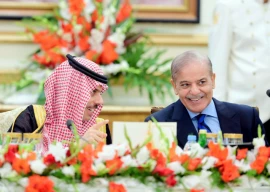
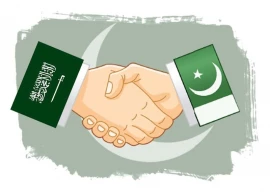


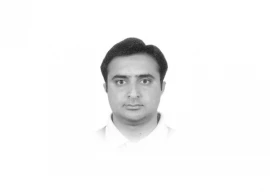
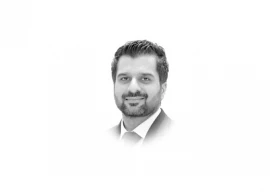











@ Shahid.
Ha! IK will rock us back to stone age? Sounds like the G.W.Bush's solecism: "...or we will bomb you to stone age.." We haven't learned anything in a decade, have we?
IK will do just fine, inshallah. Ameen.
What a bias report! MQM has its media cell and online activities for more than a decade and have very strong presence in forums and other social network. Even different TV shows have showed how well MQM has managed its online presence but I think writer deliberately missed it. I really don't understand why we need to be biased all the time?
@Shahid......don't blame IK, you are already living in stone age.
PPP should seriously consider replacing Jarral. Common you almost dont exist on social media
I guess PMLN cannot implement Local Govt: since Choty Mian Sb is very Autocratic.
@Sarmad
Unfortunately IK plans to "rock" us back to the stone age - Jirga form of justice, open support for TTP, and continued persecution of Ahmedis.
@AA: Sure of course. The common thread amongst both APML and PM is naturally all the leisure time they currently enjoy ;) I will take the liberty and second "Queen" that IK rocks.
And obviously you are either blind or baised not to see APML or PM page which has still 20% lead to IK pages.
No offense to anyone but PTI rocks in the virtual world and in the real world as well ;)